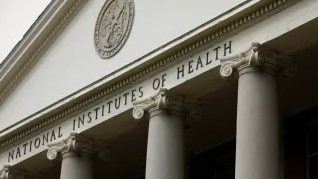
Scientific researchers are concerned after the National Institutes of Health (NIH) abruptly canceled numerous meetings essential to the fellowship and grant approval process earlier this week.
“At the present time, all Federal advisory committee meetings are canceled,” reads an internal email from the NIH shared with The Hill.
“We apologize for any inconvenience this may cause and appreciate your understanding. … We will get back in touch with you when we have further information. Thank you for your service to NIH.”
Some of the canceled meetings include study sections, which review the applications for NIH fellowships and grants, and advisory council meetings, which determines if an application should receive a recommendation for funding from an NIH institute or center.
A National Vaccine Advisory Committee meeting scheduled for Feb. 20-21 was one of the meetings canceled, as well as a meeting of the Presidential Advisory Council on Combating Antibiotic-Resistant Bacteria slated for Jan. 28-29, according to Stat News, which first reported the cancellations.
The meeting cancellations place the future of scientific research proposals up in the air, with some researchers fearing that some applications will miss their window of opportunity to ever receive NIH funding.
Preparing fellowship and grant proposals for the NIH is a lengthy process, with many applications running more than 100 pages long, according to one researcher who spoke to The Hill.
The review process is also time-consuming, lasting anywhere between eight and 20 months before a final funding decision is made, according to the NIH website.
“I don’t know that there’s a precedent to this, certainly not on the scale,” said Esther Choo, a professor of emergency medicine at Oregon Health and Science University, whose NIH study section was canceled.
She stressed that these meetings have a lot of moving parts and are not easily rescheduled.
“I don’t have a good mental map for how you recover from something like this. How do you reschedule a whole round of review?”
The meeting cancellations come shortly after the Trump administration froze many federal health agency communications. It is unclear whether the freeze and cancellations are connected.
An NIH spokesperson did not answer questions from The Hill on why the study sections and council meetings were canceled or how many meetings in total have been canceled. Instead, the agency sent a statement related to the communication freeze.
“HHS has issued a pause on mass communications and public appearances that are not directly related to emergencies or critical to preserving health,” the statement reads.
“This is a short pause to allow the new team to set up a process for review and prioritization. There are exceptions for announcements that HHS divisions believe are mission critical, but they will be made on a case-by-case basis.”